Latin America Update, March 2014
In 'Latin America Update' Gateway House lists some of the important events in Latin America over the past month
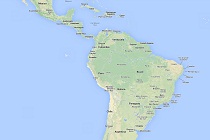 Courtesy: Google Maps
Courtesy: Google Maps
In 'Latin America Update' Gateway House lists some of the important events in Latin America over the past month
 Courtesy: G20 Taskforce, Department of Prime Minister and Cabinet
Courtesy: G20 Taskforce, Department of Prime Minister and Cabinet
After 2008 the G20 framed guidelines for emerging economies to coordinate their financial actions with the developed world. But the US’s backtracking created havoc in many countries. Now, after the recent G20 meeting, it may be time for the RBI to reconsider some financial measures, which India took in good faith
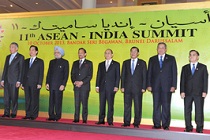 Courtesy: Prime Minister's Office
Courtesy: Prime Minister's Office
The India-ASEAN Free Trade Agreement in services and trade will allow India to leverage its competitive offerings in IT, finance, among other fields. But the pact has proved elusive so far due to the open squabbling between ministries. The deal now looks set to come through only after the new government takes over
 Courtesy: monotrilho|/Flickr
Courtesy: monotrilho|/Flickr
With elections scheduled in seven Latin American countries, 2014 will be a year of significant political developments in the region. As we enter 2014, Gateway House examines the important events that defined Latin American politics and economy in 2013
 Courtesy: Shahnoor Habib Munmum/Wikimedia Commons
Courtesy: Shahnoor Habib Munmum/Wikimedia Commons
The issue of foreign direct investment in pharmaceuticals has come under attack from many lobbies. The answers lie in the public sector or public distribution mechanisms. Addressing public health concerns without vitiating the investment climate must be one of the key priorities of the next government
 Courtesy: Government of India
Courtesy: Government of India
The extent of the rupee’s depreciation in 2013 demonstrates the Indian market’s dependence on overseas portfolio investments. Can developing domestic institutional bulwarks allay anxieties during similar crises? Is tapping into India’s deep pool of domestic savings, by modifying archaic regulations, an option?
 Courtesy: WikimediaCommons
Courtesy: WikimediaCommons
The return of the Left after four years, with the election this week of Michelle Bachelet as the president of Chile, will not mean any drastic change of direction. Chile has the most stable democracy and dynamic market in Latin America, and its Left can become a model for other countries, including India
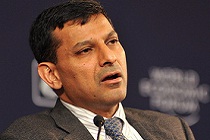 Courtesy: World Economic Forum/Flickr
Courtesy: World Economic Forum/Flickr
The recent statement by the governor of the RBI that foreign banks might be allowed to take over Indian banks, has rekindled the debate on the status of foreign banks. What has prompted the RBI’s new position and how does it weigh against the existing policy landscape? Why are foreign banks waiting and watching?
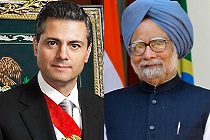 Courtesy: WikimediaCommons
Courtesy: WikimediaCommons
Mexico is now being increasingly referred to as the ‘China of the Americas.’ With the Mexican government introducing reforms in several sectors, and thereby easing the scope of business, how can India –which is slowly expanding its footprint in Latin America – benefit from Mexico’s rise?
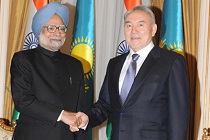 Courtesy: Prime Minister's Office, India
Courtesy: Prime Minister's Office, India
The current political, strategic and economic scenarios, both regionally and internationally, present immense potential for India and Kazakhstan to enhance their engagement, qualitatively and quantitatively. Why must New Delhi and Astana forge stronger and deeper relations with each other?